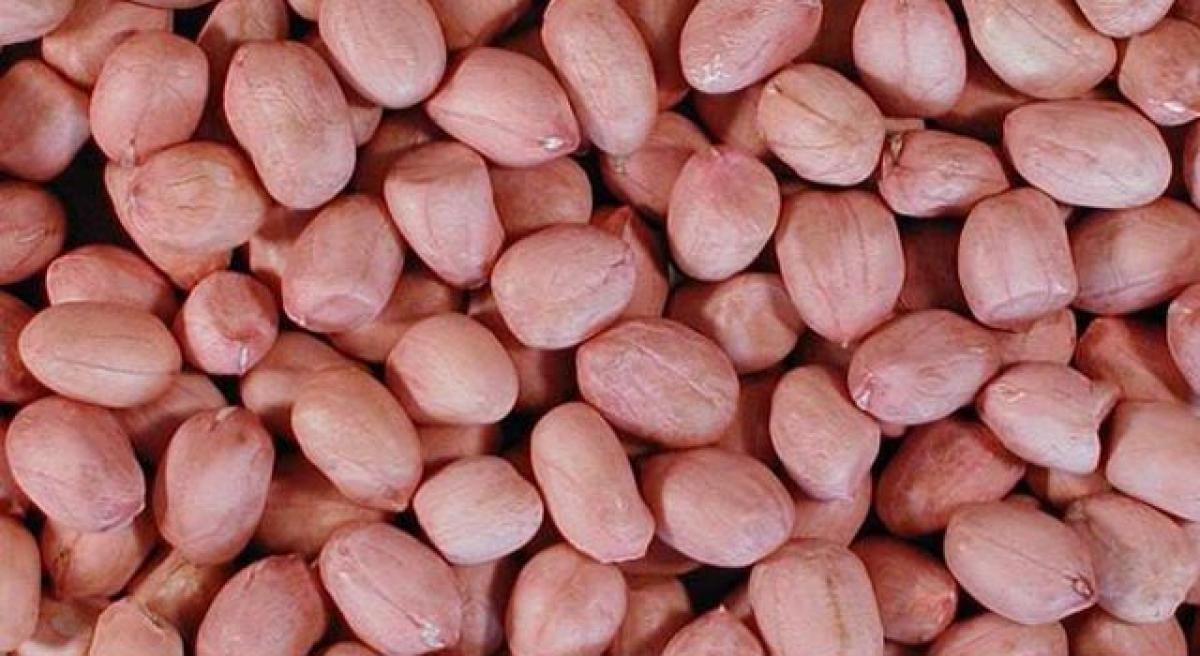Live
- Air India Express row: 'Company leadership available for discussions', CEO says in letter to employees
- 'When will Shiv Sena-UBT merge with Congress', asks BJP & Shinde camp
- RBI lifts ban on Bank of Baroda's BoB World
- Youth should come forward for blood donation: District Medical Officer Dr. Sudhakar Lal
- Grand Farewell Day Celebrations in Government Degree College
- PM Modi holds roadshow in Vijayawada with Chandrababu Naidu, Pawan Kalyan
- Farmers should be alerted: District Collector Uday Kumar
- 95 more Myanmar refugees enter Mizoram to avoid 'forceful' induction in militant outfit
- Punish Congress for Pitroda's 'racial' comments: PM Modi
- RML Hospital bribery case: CBI books over 15 including 2 doctors
Just In

Except four oil mills, 156 oil mills in Anantapur, Hindupur, Tadipatri, Kalyandurg, Rayadurg, Uravakonda and Dharmavaram regions have downed their shutters over a period of time. Today, only four oil mills are taking care of whatever business that is left to them. They are also taking up crushing of other oil seeds.
Anantapur: Groundnut oil mills in Anantapur, said to be the world’s largest groundnut district with cultivation spread over eight lakh acres, are fast becoming extinct thanks to erratic climate and drought ruling the roost for years. Crop failure during the decade-and-a-half has taken a toll on the oil mills, which were established more than five decades ago.
Except four oil mills, 156 oil mills in Anantapur, Hindupur, Tadipatri, Kalyandurg, Rayadurg, Uravakonda and Dharmavaram regions have downed their shutters over a period of time. Today, only four oil mills are taking care of whatever business that is left to them. They are also taking up crushing of other oil seeds.
For nearly 20 years, groundnut oil mills flourished with a refinery at Gooty catering to the refining of processed oil. But this is a thing of the past with drought conditions prevailing for over a decade and groundnut cultivation and market becoming unpredictable.LN Ramesh, owner of Rama Krishna Oil Mills, said that the best days were over and future is dark.
Since the district has a history of drought and erratic monsoon, one cannot expect things to improve, especially when drought is ruling the district continuously for over a decade. Unless Polavaram project is taken up and completed on a war-footing and water is brought to the parched Rayalaseema, there is no hope for the region,” he said.
On the outskirts of Anantapur city, there were 15 oil mills, but 13 downed their shutters and a section of them leased out their space for other commercial activity. So is the case with 20 oil mills in Dharmavaram with just one mill operating on a ventilator.
Oil mills in other parts of the district have virtually locked their premises, while some of them have diversified into business other than crushing oil seed. They are collecting the groundnut from the farmers and traders and supplying the same to the government to enable the latter to supply the same again to farmers as groundnut seed. A few of them are using their oil mills to crush sunflower and cotton seed.
Rami Reddy, president of Anantapur District Oil Millers Association, told The Hans India that they are now in the sunset phase of the once-thriving activity. He said 10 consecutive years of drought, farmers exporting the seed, popularly known as peanuts, in view of its high demand abroad, and palm oil capturing the market due to its low cost were the primary reasons for the precarious condition of the oil mills.
There was a time when our oil mill premises were full of trucks carrying groundnut brought for crushing. Today, on any given day, it is hard to find a lorry load of groundnut bags dumping the produce. The cost of maintenance of oil mills and the power bills are putting a heavy financial burden on the mills, forcing the managements to diversify. Unless the Handri Neeva project is completed and Krishna water is brought to Rayalaseema and Anantapur, we don’t see light at the end of the tunnel,” he said.
Ramamohan Rao, owner of Sri Lakshmi Oil Mill, said that when YSR was alive, he used to ensure additional water to the district during times of crisis. Water allotted to us is not being released and water that is released is evaporating by the time it travels 110 km from Tungabhadra reservoir to Andhra Pradesh.
There is no MSP for groundnut. The price of Rs 2,300 per bag declined to Rs 1,700 and the procurement price of groundnut seed came down from Rs 91 to Rs 71. Rains play truant in Rayalaseema and unless we get Krishna water through Pattiseema as promised, what good is in store for us?” he asked.
Initially, the oil mill owners expected a bumper crop as the predictions were promising, but now, one can expect only 20 per cent produce despite rain guns and life-saving irrigation talking off.AP Rythu Sangham president Peddi Reddy told The Hans India that 15 years of drought had messed up the economy of the district.
Oil millers are unable to pay even the minimum power bills as part of maintenance costs of vacant premises,” he said. A couple of millers were procuring groundnut from Mahbubnagar in Telanagana and crushing them just to keep the ball rolling.
The decline of oil mill business also saw loss of livelihood of Hamalis. Nearly 20 to 100 Hamalis used to work in each mill every day depending on the crushing capacity of the mills. Peddi Reddi demanded the government to extend power subsidies to mill owners and other incentives and save the groundnut oil industry.

© 2024 Hyderabad Media House Limited/The Hans India. All rights reserved. Powered by hocalwire.com







